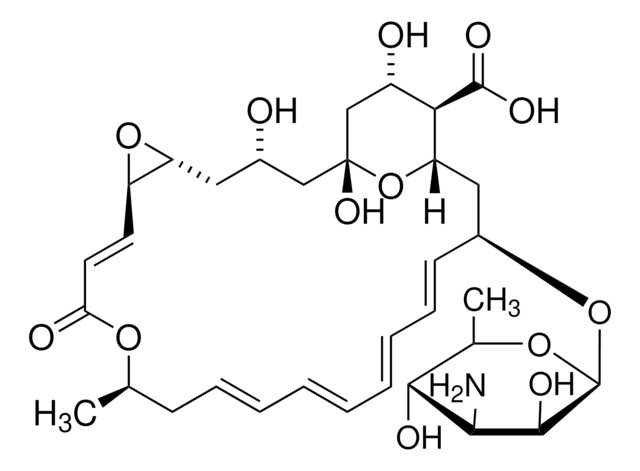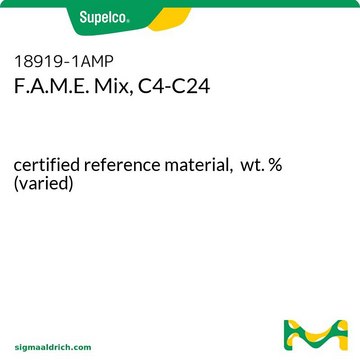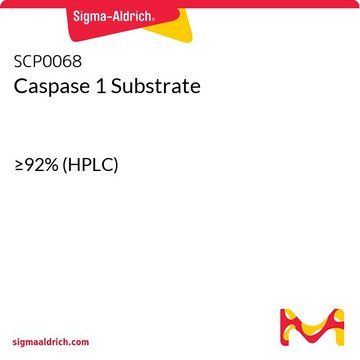04-1552
Anti-TLS Antibody, clone 1FU-1D2
ascites fluid, clone 1FU-1D2, from mouse
Synonyme(s) :
75 kDa DNA-pairing protein, FUS-CHOP fusion protein, FUS-CHOP protein fusion, Fusion gene in myxoid liposarcoma, Oncogene FUS, Oncogene TLS, Translocated in liposarcoma protein, fus-like protein, fus/tls-chop oncogene, fusion (involved in t(12, 16) in ma
About This Item
Produits recommandés
Source biologique
mouse
Niveau de qualité
Forme d'anticorps
ascites fluid
Type de produit anticorps
primary antibodies
Clone
1FU-1D2, monoclonal
Espèces réactives
human, rat, mouse
Technique(s)
immunocytochemistry: suitable
western blot: suitable
Isotype
IgG1κ
Numéro d'accès NCBI
Numéro d'accès UniProt
Conditions d'expédition
dry ice
Modification post-traductionnelle de la cible
unmodified
Informations sur le gène
human ... FUS(2521)
Description générale
Spécificité
Immunogène
Application
1:500 dilution from a representative lot detected TLS in C2C12 cells.
Epigenetics & Nuclear Function
Epigenetics & Nuclear Function
RNA Metabolism & Binding Proteins
Transcription Factors
Qualité
Western Blot Analysis: 1:1,000 dilution of this antibody detected TLS on 10 µg of HepG2 cell lysate.
Description de la cible
Forme physique
Stockage et stabilité
Handling Recommendations: Upon receipt and prior to removing the cap, centrifuge the vial and gently mix the solution. Aliquot into microcentrifuge tubes and store at -20°C. Avoid repeated freeze/thaw cycles, which may damage IgG and affect product performance.
Remarque sur l'analyse
HepG2 cell lysate
Clause de non-responsabilité
Vous ne trouvez pas le bon produit ?
Essayez notre Outil de sélection de produits.
Code de la classe de stockage
12 - Non Combustible Liquids
Classe de danger pour l'eau (WGK)
nwg
Point d'éclair (°F)
Not applicable
Point d'éclair (°C)
Not applicable
Certificats d'analyse (COA)
Recherchez un Certificats d'analyse (COA) en saisissant le numéro de lot du produit. Les numéros de lot figurent sur l'étiquette du produit après les mots "Lot" ou "Batch".
Déjà en possession de ce produit ?
Retrouvez la documentation relative aux produits que vous avez récemment achetés dans la Bibliothèque de documents.
Notre équipe de scientifiques dispose d'une expérience dans tous les secteurs de la recherche, notamment en sciences de la vie, science des matériaux, synthèse chimique, chromatographie, analyse et dans de nombreux autres domaines..
Contacter notre Service technique


